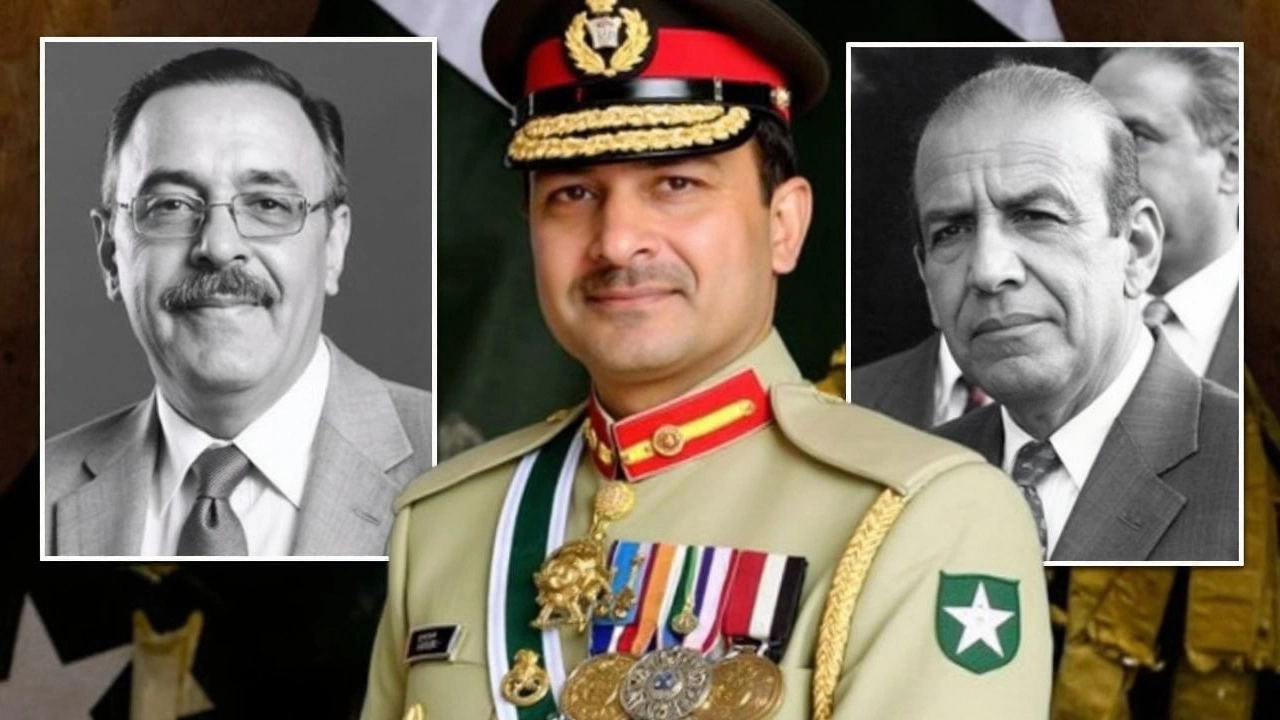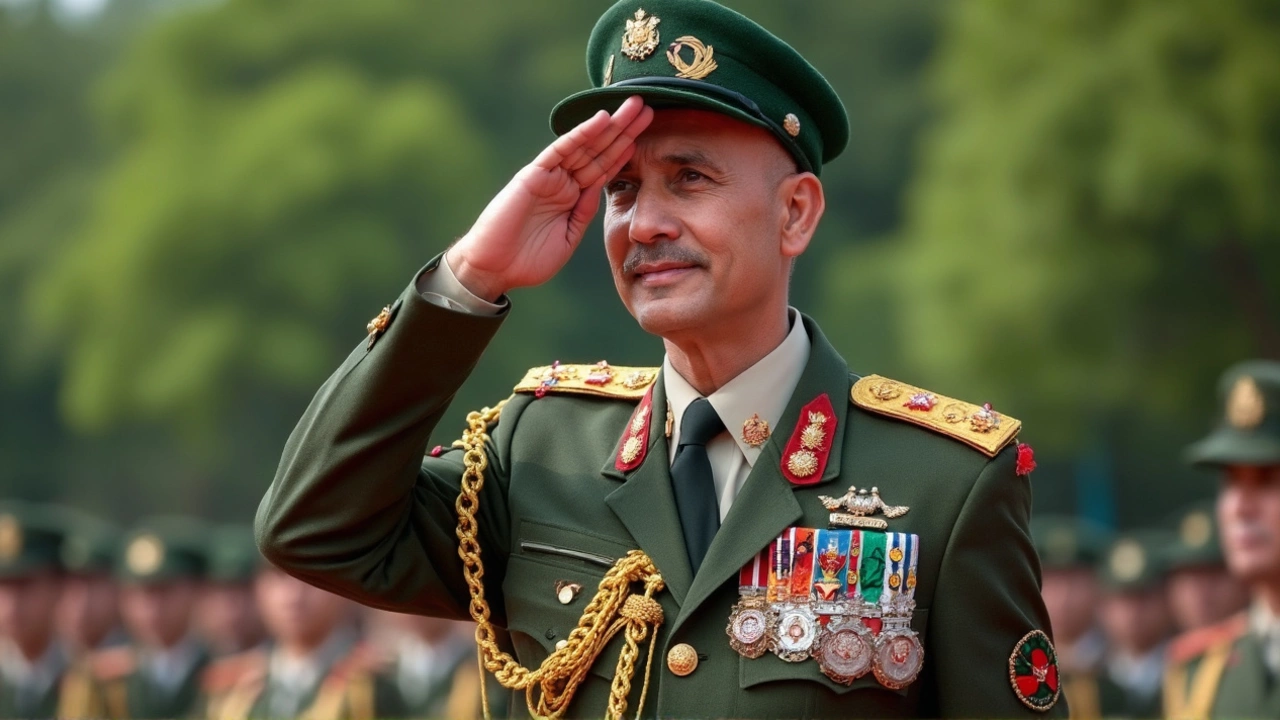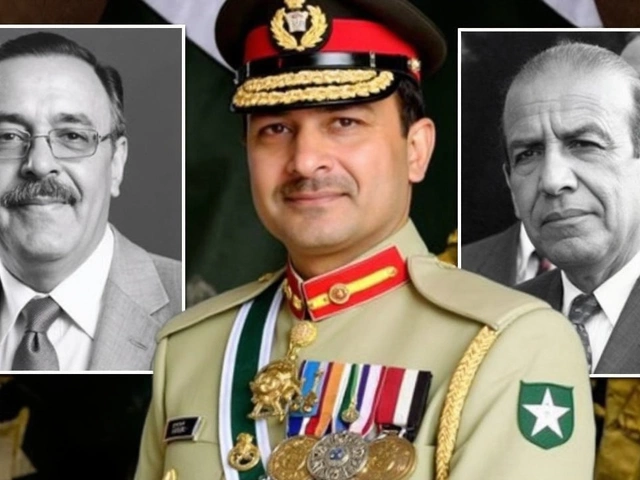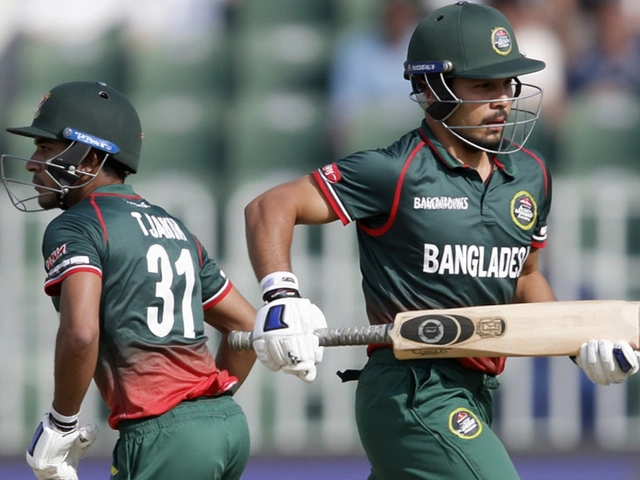Pakistan Army Chief Asim Munir Elevated to Field Marshal Amid Recent India Clashes and Political Tensions

Pakistan's Historic Promotion: Military Pride or Political Shield?
For more than six decades, no Pakistani military leader has worn the uniform of a Field Marshal. That changed this week when Prime Minister Shehbaz Sharif elevated Army Chief General Asim Munir to the prestigious, almost mythical, rank. The decision came at a tense moment: just days after Pakistan’s air bases saw retaliatory strikes by India, following a deadly terrorist attack in Pahalgam that reignited old hostilities across the border.
Munir is only the second person in Pakistan’s history to carry the Field Marshal title—the last was Ayub Khan, the notorious strongman who wore the honor through turbulent chapters of the 1950s and 60s. In practical terms, Field Marshal isn’t an operational job. There’s no extra command authority or strategic power. Instead, it’s all about the optics: the right to keep wearing the uniform after retirement, a ceremonial baton, and a pageantry only a handful of military leaders in the world ever taste.

Reading Between the Ranks: Symbolism and Strategy
The official line is straightforward. The federal cabinet approved Munir’s promotion as a nod to his ‘strategic brilliance’ and his role in supposedly turning the tide during the recent flare-up with India. Prime Minister Sharif lauded his leadership during Operation Bunyanum Marsoos—a clever-sounding name assigned to Pakistan’s military response which, behind closed doors, remains shrouded in more questions than answers.
But scratch the surface, and the move looks more layered than patriotic. Pakistan’s military isn’t known for showering such titles unless it serves a bigger purpose. Political analysts inside and outside Islamabad are reading this as a calculated move. Boosting Munir’s prestige shores up the military’s image at a time when critics have pointed out failures both on the battlefield and in the political arena. Notably, it comes as the country’s military and civilian establishment lock horns with former Prime Minister Imran Khan’s persistent popularity and his loaded accusations of military overreach. In this light, Munir’s elevation could be seen as an effort to solidify his grip and project continuity, especially as military operations and decisions now face growing scrutiny on social media and in parliament.
There are skeptics too. Some defense watchers argue the move is meant to mask recent shortcomings—an attempt to reroute public attention from tactical blunders to grand uniforms and ceremonial batons. After the airstrikes and the rushed ceasefire with India, questions keep swirling about preparedness, chain-of-command confusion, and whether the country’s strategic doctrines are still fit for purpose.
Munir, meanwhile, played to the sentimentality of the moment. He dedicated the honor to the resilience of Pakistan’s armed forces and to the memory of ‘martyrs’, reinforcing the military’s traditional image as the ultimate national defender. It’s a message likely aimed as much at the troops as to the general public at a time when national morale feels shaky.
The promotion comes as Islamabad and New Delhi remain locked in a fragile, uneasy truce. For now, the new Field Marshal finds himself at the crossroads of symbolism and strategy, his spangled uniform both an emblem of pride and a shield from the growing demands for accountability.


